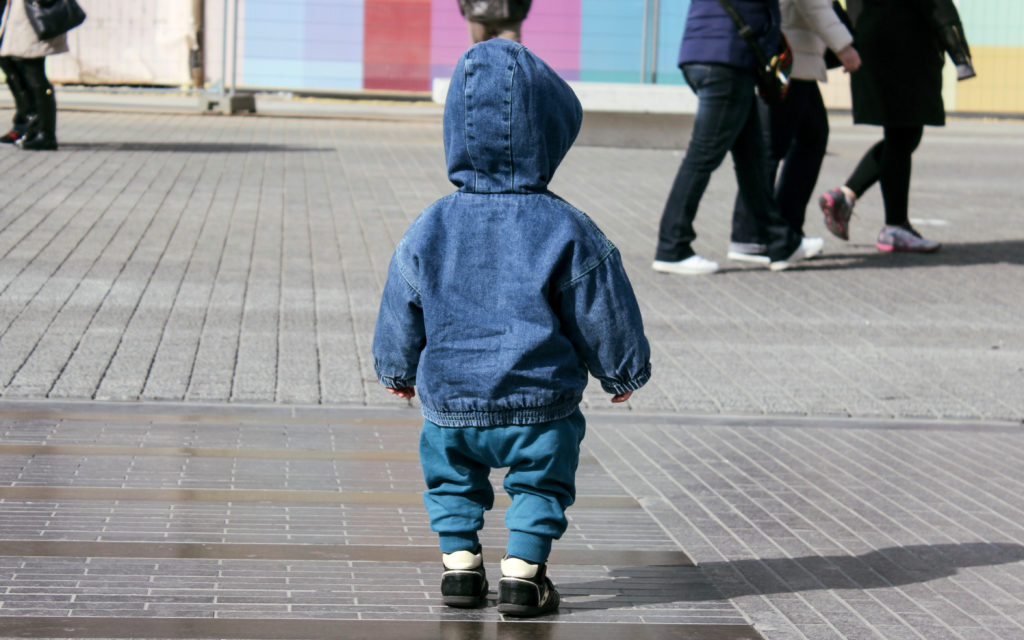Globally, a significant number of children disappear annually, and regrettably, a considerable portion remains unfound. Whether children choose to leave their home without permission, are taken by one of their parents without the other’s consent, or are forcibly abducted by others, these events present significant difficulties in terms of prevention and intervention.

Confronting the harsh reality of child disappearance
While international laws protect children against certain forms of disappearance or abduction, there’s no global agreement on the exact definition of a missing child or how to handle such cases. For instance, in Canada, Greece, and India, a missing child is defined as any individual under the age of eighteen whose whereabouts are unknown to their custodial parents or legal guardians (International Centre for Missing & Exploited Children, n.d.).
However, in South Korea, the definition of a missing child is slightly different. It includes children under the age of fourteen at the time of disappearance, as well as individuals with intellectual, autistic, or mental disabilities who are separated from their custodians due to various reasons (International Centre for Missing & Exploited Children, n.d.).
In developing countries, a significant challenge arises due to the lack of reliable statistics on missing children. Even when data is accessible, it may be inaccurate due to factors like under-reporting, statistical inflation, incorrect data entry, and the deletion of records once cases are closed. Conversely, developed countries consistently report high numbers of missing children year after year (International Centre for Missing & Exploited Children, n.d.).
For instance, in Australia, approximately 20,000 children are reported missing annually, according to the Australian Federal Police’s National Coordination Centre. Similarly, in Germany, the Initiative Vermisste Kinder indicates that around 100,000 children are reported missing yearly (International Centre for Missing & Exploited Children, n.d.).
Meanwhile, the United States faces an even larger challenge, with an estimated 460,000 children reported missing each year, as per the Federal Bureau of Investigation’s National Crime Information Center (International Centre for Missing & Exploited Children, n.d.).
Types of child disappearances
Parental abductions
Interestingly, strangers account for less than 1% of missing children cases, while parents are responsible for over 90% of abductions. Contrary to popular belief, it’s not just young children who are kidnapped; teenagers are, in fact, the most common age group for abduction. Statistics reveal that teenagers aged between twelve and eighteen make up 80% of all parental and stranger abductions in the United States (Safe at Last, 2022).
Stranger abductions
In extraordinary circumstances like children living in conflict zones or migrating unaccompanied, the situation differs. Children in conflict-affected areas continue to face a significant threat of stranger abduction. In 2021, regions such as the Occupied Palestinian Territories (Gaza Strip, West Ban, and East Jerusalem), the Democratic Republic of the Congo (DRC), and Somalia reported the highest number of verified violations, with the DRC accounting for 34% of all abductions (Save the Children, n.d.).
Runaways
A runaway is a minor who leaves home without permission from their guardian or has been expelled by their parents, commonly referred to as “endangered runaways.” According to statistics from the National Center for Missing and Exploited Children in the United States, over 20,500 children have been reported missing in 2016, with 90% falling into this category (Child Crime Prevention & Safety Center, n.d.).
Unaccompanied minors
The global number of missing migrant children is on the rise. As defined by the European Federation for Missing and Sexually Exploited Children, these are children registered with state authorities who disappear from designated accommodation centers. While most are unaccompanied minors, this category also encompasses separated children and those traveling with family members. Between 2018 and 2020, Lost in Europe, a journalism project, documented over 18,000 missing migrant children in Europe (European Parliament, 2023).
Missing children after natural disasters
Natural disasters render children especially susceptible to trafficking, often leading to their exploitation and categorization as missing. In the aftermath, such as after the 2013 typhoon in the Philippines, among others, chaos and widespread panic contribute to a surge in child trafficking. According to the UN Office on Drugs and Crime, the most prevalent form of human trafficking involves the trafficking of girls for sexual exploitation (Childs, 2016).
Causes of child disappearances

Voluntary disappearance
Voluntary reasons often stem from familial issues or teenage rebellion, leading some to run away from home. Conflict with parents or guardians is reported by 47% of runaways. Furthermore, a significant portion indicates that their parents either directed them to leave or were aware but unconcerned. In addition, 75% percent of runaways are female. A significant majority of them, specifically 80%, disclose experiencing instances of sexual or physical abuse within their home environment (Child Crime Prevention & Safety Center, n.d.).
The phenomenon of running away due to adverse childhood experiences is noticed both in the United States and Europe. Data from children hotlines in Europe reveals that 83% of runaway children did so due to issues at home, 61% due to problems in their care homes, and 56% due to difficulties at school (Missing Children Europe, n.d.).
Involuntary disappearance
Involuntary reasons involve abduction by individuals engaged in harmful activities like pedophilia, sexual exploitation, forced labor, illegal adoption, and parental abduction. Unaccompanied minors are also vulnerable to disappearance. These involuntary circumstances are more challenging to prevent, as they often lie beyond parental control. Nevertheless, parents should still impart safety awareness to their children to mitigate risks where possible (The Australian Federal Police, n.d.).
Regrettably, the disappearance of children in migration is often overlooked, with the assumption that it’s a voluntary act by the child. Little to no assessment is made of the reasons behind their disappearance, the potential for abduction, or the risks they face (Missing Children Europe, n.d.).
Additionally, when children are separated from their families in the aftermath of natural disasters, there’s a risk of them being misidentified as orphans. This mistaken assumption can expose these children to heightened vulnerability. Tragically, this can lead to them being targeted by trafficking rings for exploitation or becoming victims of illegal adoption (Childs, 2016).
Understanding the effects on children
The 2010 study from the Institute of Criminal Justice Studies, University of Portsmouth, found that 51% of children reported missing three or more times over a year in Oxford were involved in crime. Among them, 82% were arrested at least once, with common offenses including assault, theft, shoplifting, and criminal damage (Shalev, 2010).
The lack of stability and support often experienced by these children may lead them to seek belonging and validation from alternative sources, such as peer groups involved in criminal behavior. Without proper intervention and support systems in place, these children may find themselves caught in a cycle of crime and victimization, perpetuating the cycle of vulnerability and instability.
Furthermore, the research shows that the repercussions of voluntary disappearance also extend well into adulthood. Adults who ran away as children exhibit concerning statistics: a 51% increase in suicidal thoughts, are 50% less likely to complete their education, and experience two to three times higher rates of lifetime drug use (Missing Children Europe, n.d.).
Conventions related to missing children
In the realm of international child protection, several significant conventions address the complexities of missing children, with one of the most pivotal being the Convention on the Civil Aspects of International Child Abduction, established in 1980. This agreement addresses the legal aspects surrounding cases of international child abduction, aiming to safeguard children from the harmful consequences of wrongful removal or retention across borders (HCCH, n.d.).
In addition, The International Convention for the Protection of All Persons from Enforced Disappearance (ICPPED), adopted in December 2006, is the first universally legally binding human rights instrument concerning enforced disappearance. When countries ratify it, they agree to ban enforced disappearance completely, making it a crime, and legally pursuing those responsible for their actions (United Nations, n.d.).
Furthermore, Article 18 of the International Convention on the Rights of the Child echoes the importance of shared parental responsibilities, highlighting that both parents have common obligations for a child’s upbringing and development, with paramount consideration given to the child’s best interests.
Preventing child disappearances: strategies for a safer tomorrow
State authorities bear the primary responsibility for assisting missing persons and their families. Authorities must further strengthen child protection measures by improving coordination between law enforcement agencies, enhancing public awareness campaigns, and investing in support services for at-risk children and families.
To improve matters on this issue further, new laws should be implemented across countries to aid law enforcement in handling missing children cases more effectively. These laws ought to define various categories of missing children and stipulate specific interventions for each category.
It is imperative for parents to educate children on self-protection measures and appropriate responses when approached by strangers. Children should be firmly encouraged to never accompany unfamiliar individuals or enter their vehicles. Equipping children with the ability to assertively decline and disengage, while vocally seeking assistance, can significantly contribute to their safety and potentially save lives (Schaechter, 2018).

Each statistic hides a heartbreaking story of a missing child, deeply impacting their families and communities. In response to this challenging situation, numerous NGOs in Europe have initiated 24/7 phone support for families and children facing unimaginable difficulties. They offer mental health support, legal advice, and social resources, ensuring that every family and child receives the assistance they need (Missing Children Europe, n.d.).
Should you find yourself in need of assistance in safeguarding a child’s rights, do not hesitate to reach out to Humanium via our Legal Helpline. We are committed to aiding you in reporting any infringements upon children’s rights. Our organization endeavors to offer guidance and counsel, or facilitate connections with relevant authorities as necessary.
Written by Lidija Misic
Internally proofread by Aditi Partha
Last updated on February 24, 2024
Bibliography:
Child Crime Prevention & Safety Center (n.d.), Runaways. Retrieved from Child Crime Prevention & Safety Center at https://childsafety.losangelescriminallawyer.pro/runaways.html. Accessed on February 9, 2024.
Childs Anna (2016), Why child trafficking spikes after natural disasters – and what we can do about it. Retrieved from The Conversation at https://theconversation.com/why-child-trafficking-spikes-after-natural-disasters-and-what-we-can-do-about-it-53464. Accessed on March 18, 2024.
European Parliament (2023), Disappearance of migrant children in the EU. Retrieved from European Parliament at https://www.europarl.europa.eu/thinktank/en/document/EPRS_ATA(2022)733670. Accessed on February 9, 2024.
Homolova Adriana (2021), Nearly 17 child migrants a day vanished in Europe since 2018. Retrieved from The Guardian at https://www.theguardian.com/global-development/2021/apr/21/nearly-17-child-migrants-a-day-vanished-in-europe-since-2018. Accessed on February 9, 2024.
HCCH (n.d.), 28: Convention of 25 October 1980 on the Civil Aspects of International Child Abduction. Retrieved from HCCH at https://www.hcch.net/en/instruments/conventions/full-text/?cid=24. Accessed on March 18, 2024.
International Centre for Missing & Exploited Children (n.d.), Definitions of “Missing”. Retrieved from ICMEC at https://www.icmec.org/global-missing-childrens-center/definition-of-missing/. Accessed on February 8, 2024.
International Centre for Missing & Exploited Children (n.d.), Missing Children’s Statistics. Retrieved from ICMEC at https://globalmissingkids.org/awareness/missing-children-statistics/. Accessed on February 8, 2024.
Missing Children Europe (n.d.), Children in migration. Retrieved from Missing Children Europe at https://missingchildreneurope.eu/children-in-migration/. Accessed on February 9, 2024.
Missing Children Europe (n.d.), Children who run away. Retrieved from Missing Children Europe at https://missingchildreneurope.eu/runaways/. Accessed on February 9, 2024.
Missing Children Europe (n.d.), Every 2 Minutes A Child Disappears in Europe – Urgent Call to Action on International Missing Children’s Day . Retrieved from Missing Children Europe at https://missingchildreneurope.eu/press-release-imcd-2023/. Accessed on February 24, 2024.
Safe at Last (2022), The Truth About Child Abduction Statistics in 2023. Retrieved from Safe at Last at https://safeatlast.co/blog/child-abduction-statistics/#gref. Accessed on February 9, 2024.
Save the Children (n.d.), Abduction of Children in Armed Conflict. Retrieved from Save the Children at https://www.savethechildren.org/us/charity-stories/abduction-capture-children-armed-conflict. Accessed on February 9, 2024.
Schaechter Judy (2018), Help Prevent Your Child from Going Missing: Safety Tips from the AAP. Retrieved from American Academy of Pediatrics at https://www.healthychildren.org/English/safety-prevention/all-around/Pages/Preventing-Child-Abductions.aspx. Accessed on March 17, 2024.
Shalev Karen (2010), Children Who Go Missing Repeatedly and Their Involvement in Crime. Retrieved from ResearchGate at https://www.researchgate.net/publication/270560782_Children_Who_Go_Missing_Repeatedly_and_Their_Involvement_in_Crime. Accessed on March 18, 2024.
The Australian Federal Police (n.d.), Why People Go Missing? Retrieved from The Australian Federal Police at https://www.missingpersons.gov.au/about/why-people-go-missing. Accessed on February 9, 2024.
United Nations (n.d.), Background to the International Convention for the Protection of All Persons from Enforced Disappearance. Retrieved from OHCHR at https://www.ohchr.org/en/treaty-bodies/ced/background-international-convention-protection-all-persons-enforced-disappearance. Accessed on March 18, 2024.

